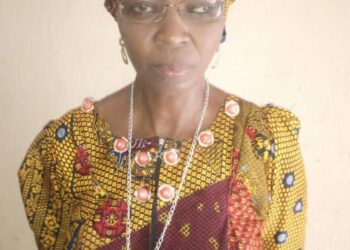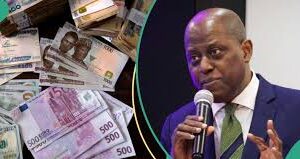Nothing perhaps demonstrates the incompetence, dead beat nature of the Nasarawa State Electricity Agency, NAEPA, than its aloofness while the Abuja Electricity Distribution Company, which oversees Nasarawa state, exploits the very people it (NAEPA) was established to help. Frustrated and seemingly helpless, a group of concerned persons acting on behalf of Lafia residents have decided to sue AEDC, joining the Nigeria Electricity Regulatory Commission, NERC, for its unfair treatment of Lafia consumers.
Before dragging it to court, they had written a petition addressed to the Lafia Area Manager of AEDC. In it, they complained of “our bitter experiences and unbecoming attitude of the Abuja Electricity Distribution Company (AEDC) office in Lafia towards our plight”. It was signed for and on behalf of Lafia residents by Hon. Abdul-Hamid Kwarra, Alhaji Muhammadu B. Mammaki, Alhaji Abdu-azziz Tijjani and Alhaji Rayyanu Bala. They noted that AEDC has been billing residents of Lafia based on Band A tariff while there was no commensurate electricity supply to the city to justify Band A billing.
They, therefore, requested that “henceforth all Lafia residents under the coverage of AEDC should be placed on Band D pending when AEDC is able to meet the requirement of 20 hours of electricity supply to Lafia city before migrating the consumers to Band A’’. They also requested refund of tariff imposed on the residents of Lafia since June 2022, when AEDC moved them to Band A to the time of writing the petition, when supply over the months was not up to the stipulated 20 hours per day.
Electricity consumers in Nigeria are split into five categories and charged accordingly. Those on Band A tariff must enjoy 20 hours and above of electricity daily, at least 16 hours of power for those on Band B, over 12 hours for Band C, not less than eight hours for Band D consumers while Band E is for customers that get only four hours and above of electricity daily but less than eight hours. The petition by the group was titled, ‘’Epileptic service of AEDC cum exploitative, uniform estimated billing for consumers in Lafia despite huge funding by state government for completion of 330KV Lafia power station’’.
In summary, the concerned Lafia residents demanded that AEDC scrap its exorbitant, unjust estimated billing system by charging residents according to their metre readings, give them stable power supply which is their due (in contrast to its epileptic service) and make prepaid metres easily accessible.
Recall that former President Muhammadu Buhari had on February 25, 2022 commissioned some landmark projects which included the 330KV Lafia power station to which the state government made significant financial contributions in order to speed up its completion. Before its launch, Lafia residents were having what is generally referred to as ‘candle light’. Not only was supply from the electricity company poor, the voltage was low, such that it could not power some domestic appliances like electric stove, air conditioners, etc.
As a result, the Nasarawa Government House since creation of the state in 1996 had not been connected to the national grid. Rather, it spent so much on energy monthly by way of diesel purchases to power the entire complex. In the months leading up to the launch of the new 33KVA Lafia power substation, during its test run upon its completion, Lafia residents enjoyed 24/7 electricity with correct voltage, that is, from December 2021 to end of February 2022. There was jubilation galore. However, no sooner had Buhari left after commissioning this legacy project than AEDC reverted to the status quo ante of load shedding.
Despite this, AEDC later put out an advertisement in a national newspaper migrating Lafia electricity consumers to Band A from Band D. As earlier explained, customers on Band A are those enjoying 24 hours supply of electricity per day. Consequently, AEDC abandoned reading of analogue metres and instead increased by geometric proportion monthly charges for houses without prepaid metres by giving them a uniform, estimated bill of N10,000 per house beginning from June 2022 and increasing it progressively every month.
It was against this background that the concerned Lafia residents, on behalf of others, petitioned the AEDC in a letter addressed to the manager, Lafia office of AEDC in July 2022. Although AEDC Lafia office acknowledged receipt of the petition, there was no positive change from it. The arbitrary, high tariff, estimated billing for those with analogue metres (who are in the majority) continues to rise every month, terminating at N40,000 flat rate per month for each house in Lafia; the exception being customers with prepaid metres. One resident described this excessive tariff without commensurate electricity supply as paying for darkness.
Consequently, the group of concerned Lafia residents instituted a legal action against AEDC, joining the NERC. The suit with file number NSD/LF41/2023 has been ongoing at High Court 5 in Lafia. Essentially, the plaintiffs are requesting, among others, a ruling that their migration from Band D to Band A tariff without corresponding/commensurate power services is unacceptable, unlawful and wrong; an order directing AEDC to revert them from Band A tariff to Band D tariff unless AEDC supplies them with required number of hours stipulated for Band A tariff; an order declaring null and void AEDC’s arbitrary electricity billing which does not reflect actual power consumption and is in violation of NERC methodology for estimated consumption; an order directing the second defendant (NERC) to sanction AEDC for billing them in violation of NERC’s methodology for estimated billing as contained in regulation 2012. As stated, the High Court has been hearing the matter for several months now.
In one of the sittings, AEDC had objected to the suit, arguing that the Lafia High Court has no jurisdiction to hear the case. After arguments by lawyers of both parties, the court reserved ruling on the matter of jurisdiction. Also, at the last adjourned date of November 29, a lawyer announced her appearance for NERC. This was objected to by the plaintiff’s lawyer who argued that the time had elapsed for such an appearance since the NERC from inception of the court’s sittings on the case had not been sending any lawyer to represent it.
Nonetheless, it is rather regrettable that the Nasarawa State Electricity Agency which is charged with responsibility of monitoring electricity supply to Nasarawa state and thus protect the interest of electricity consumers in the state has not deemed it fit to send a representative to these court sittings to, at least, observe proceedings. Ideally, it should have taken up this battle on behalf of residents of Lafia, the capital city. Instead, individual citizens are left alone to prosecute this fight for justice with their meager resources. And this begs the question: is the Nasarawa state electricity agency a dead beat?
Ikeano writes via [email protected] 08033077519




